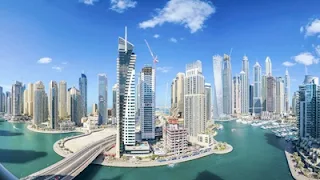The UAE Cabinet approved long-term visa system for investors, entrepreneurs, specialised talents and researchers in the fields of science, knowledge and outstanding students to facilitate business and create an attractive and encouraging investment environment for the growth of business for investors, entrepreneurs and professional talents.
The decision of the Cabinet follows the decision approved earlier this year to grant investors a ten-year residency visa, as well as to grant residency visas of up to 10 years for specialists in the medical, scientific, research and technical fields, and for scientists and creative talents of culture and arts, including their spouses and children. The decision aims to maintain the position of the UAE as an optimal business environment.
The decision includes the terms and conditions for obtaining long-term visas for investors, entrepreneurs, specialized talents, researchers in the fields of science and knowledge, and outstanding students to attract talents in all vital sectors of the national economy. The visa benefits also include the spouse and the children to ensure a cohesive family and social structure and to create a stimulating environment for stability and growth.
Investors
The decision includes the provisions to grant investors from UAE and broad a long-term visa. It defines two categories for investors: Investors in a property of a value of 5 million dirhams or more will be granted a residence for five years, and investors in public investments through a deposit, an established company, business partnership of 10 million dirhams or more, or a total investment of not less than 10 million dirhams in all areas mentioned as long as non-real estate investments are not less than 60per cent of the total investment, will be granted a renewable residency visa every 10 years.
The Cabinet decision outlines the following conditions for both categories:
- The amount invested shall be wholly owned by the investor and not loaned and should be proven by supporting documents
- Investment retention for at least 3 years A standard financial liability with a financial solvency not exceeding Dh10 million
- The long-term visa could also be extended to include business partners, provided that each partner contributes Dh10 million, the spouse and the children, as well as one executive director and one advisor.
- The decision allows investors to enter the country for a six-month period, multiple entries, to apply for the long-term visa requirements.
Entrepreneurs
The decision also includes the terms to grant a long-term visa to two categories of entrepreneurs: those having a previous project with a minimum of Dh500,000, or having the approval of an accredited business incubator in the country. Entrepreneurs will be granted a five-year visa with a possibility for upgrading to an investor’s visa provided they meet the requirements.
The benefits of the entrepreneurial visa include entrepreneurs, partners, three executive directors, spouse and children. The entrepreneur is allowed entry into the country for six months, multi-entry visa period, with renewal for another six months.
Specialised talents and researchers in the fields of science and knowledge
The decision also includes provisions for granting a 10-year visa for specialized talents and researchers in the fields of science and knowledge for doctors, specialists, scientists, inventors. As well as creative individuals in the field of culture and art. The visa's advantages include the spouse and the children.
All categories are required to have a valid employment contract in a specialised in fields of priority for the UAE, and the conditions for each category are defined as follows:
Doctors and specialists (at least 2 of the conditions mentioned below must be met)
- The holder of a PhD degree from one of the top 500 universities in the world
- The holder of an award or certificates of appreciation for the work in the applicant's jurisdiction
- Contribution to a major scientific research related to the work of the applicant
- Published articles or scientific books in distinguished publications in the field of work of the applicant
- Membership in an organization related to the work of the applicant, which requires excellent work to accept membership
- PhD degree in addition to 10-year professional experience in the applicant's field of work.
- Specialization in areas of priority to the UAE (additional requirement for doctors)
- Scientists must be accredited by the Emirates Scientists Council.
- Holders of the Mohammed bin Rashid Medal for Scientific Excellence.
Creative individuals in culture and art must be accredited by the Ministry of Culture and Knowledge Development Inventors. Obtain a patent of value added to UAE’s economy with the approval of the Ministry of Economy Exceptional Talents. Those who have exceptional talents that are documented by patents or scientific research published in world-class journals.
Executives: Owners of leading, well-known and internationally recognised companies - Holders of high academic achievement, professional experience, and position (eg, an engineer in a rare speciality with a university degree and working in a private company in the UAE). The inclusion of this category aims at maintaining current competencies and attract new competencies.
Outstanding students: The decision also includes provisions for granting a five-year visa to outstanding students with a grade of at least 95per cent in public secondary schools in public and private schools, and a distinction of at least 3.75 GPA upon graduation from universities within and outside the country. Benefits include families of the outstanding students.




